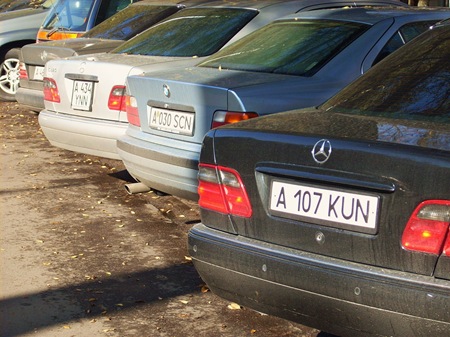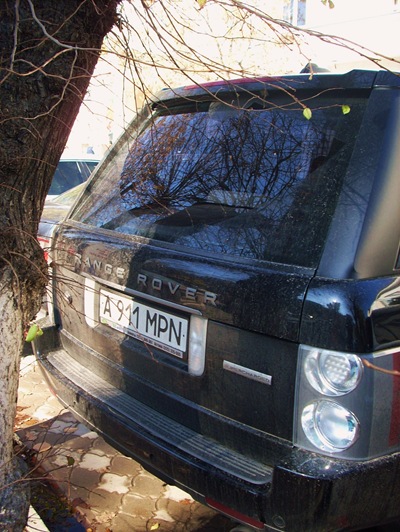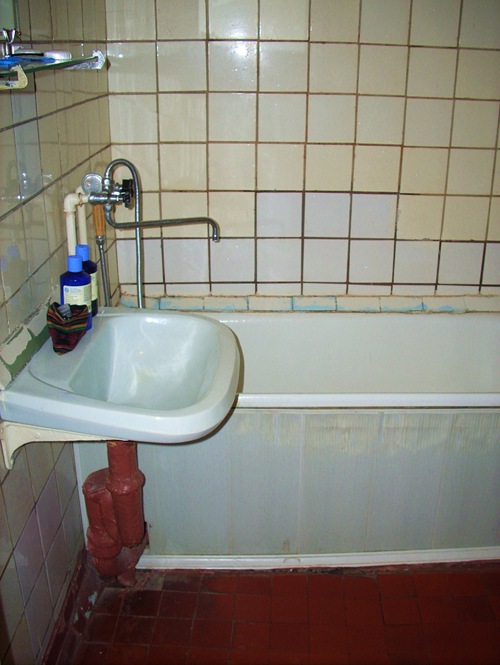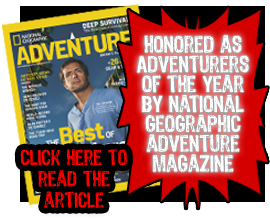Over the course of our expedition, we have received a lot of advice from many different people. On top of getting information about the country we are in or about a country we are traveling to in the future from locals, ex-pats, aid organizations staff and government workers, there is a plethora of information available online. Driving around the world in the information age definitely has its advantages, however, it also brings with it the task of sorting through the available information to determine what is actually applicable to our expedition and more importantly, the degree of accuracy and truth that the information contains.
Unfortunately, it seems that a lot of information we come across about the countries we are traveling through is negatively slanted, usually consisting of the bad experiences people have had there. While we were in Mongolia, we were passed along some information concerning passage through Siberia and the Altai region of Russia from some people who had talked with participants of the Mongol Rally. Since these guys had actually driven cars through this area, we were interested in learning what we might be able to expect down the road. The Mongol Rally guys for the most part did not have too many problems, but there were run-ins with corrupt border guards, police and the occasional mafia wannabe. This information, combined with that harvested from the net and from our guidebooks led us to believe that we were in fact entering an area where there were potential threats to our safety and to our wallets.
I was actually concerned to the point of seeking out an audience with the local security attache at the American Embassy. After talking with Embassy staff, I learned that there were "no specific threats or cause for alarm," but that I should remain vigilant. They also provided me with a pamphlet that included travel tips for U.S citizens in Russia. The pamphlet contained mostly general information that can basically apply anywhere you travel, but did contain a section about the possession of computer and electronic devices and bringing them with you into Russia. The importation, even if only temporary, of items such as cell phones, GPS units, radio electronic devices and other electronic equipment, according to the pamphlet, is subject to approval and certification from the Glavgossvyaznadzor (Main Inspectorate in Communications), a process which can take up to two weeks. Based upon our experience in simply getting a Russian visa, my head was instantly filled with thoughts of the possibility of dealing with another archaic, bureaucratic remnant of the former Soviet Union… especially considering we basically have enough electronic equipment and accessories with us to stock a Radio Shack. Based on our schedule, we obviously did not have enough time to try and get everything checked out by the Gladiator office so we decided to play dumb, yet fully expected to spend a lengthy amount of time getting processed at the border as it took an average of about eight hours of waiting for the Mongol Rally guys to get in.

Helpful or helping to build the fear factor?
After arriving at the remote Russian border at Tashanta, we prepared for the worst. We did not know much about the border except that Ewan McGregor was one of the first foreigners to cross in 2004 on his Long Way Round journey and that the Russian Embassy said that it was open to foreigners even though other information we had obtained indicated otherwise. It actually took a while just to get out of Mongolia since they have a one car per hour policy at this border… we were number four in line. We did make it out of Mongolia in under three hours and once we had spanned the 24 kilometers of no man’s land between border checkpoints, we were greeted by a cheerful Russian border guard who could not have been a day older than 18. Given his enthusiasm and comments in broken English, we may have well been the only foreigners to cross here since Ewan. Further down the road at customs, we had to wait for lunch break to end, but once it did, we were in and getting processed in a very efficient manner. We did have to get our visas registered, buy insurance for the trucks and deal with customs declarations, but everything was official and there was not even the slightest inclination of getting screwed or potentially having to line anyone’s pockets. The customs inspector, who also could not have been much older than 18, was so interested in our trucks that he only glanced inside on his search and was satisfied when we told him that we did not have any guns or marijuana with us. With that, we were off and driving legally in Russia in under 2 hours.

Playing the waiting game in Mongolia

The hassle-free Russian crossing also provided the first paved road we had seen in over a week
We did only spend four days in Russia, which may have limited our exposure to the undesirable elements that everyone seems so eager to write about and share, but we did not have any negative experiences whatsoever. I guess it is human nature to share negative experiences first and over time, no matter how isolated these events may be, they get embellished to the point where what once may have been practical information, now only serves to make you overly paranoid about benign encounters and situations. We did get stopped by the police a few times, once because our license plates were too dirty and the second time simply to satisfy the cop’s own curiosity about the trucks, but both times, the encounters ended with a firm handshake, a professional salute and a friendly "dasvidanya" from the officers. As for all of our electronic and communications equipment, well, the Embassy pamphlet was over two years old and the customs officials even told us to mark that category blank on the declaration form, so we made it in and out without any hassles and without having to dish out a single Ruble for anything we should not have.

Once in Russia, the only thing we really had to worry about was translating the road signs
A new friend that we met in Mongolia, Tom Claytor, passed on a saying from the Japanese poet Basho: learn the rules well and then forget them. This could not have been more applicable here… find out all you can about driving in and out of Russia and then forget about what you learned because your situation is probably going to be completely different. I have nothing but good things to say about our time in Russia/Siberia/Altai and it is definitely one of the top places on my list to come back to. Furthermore, I never wished that I was able to speak the local language more so than in Russia because countless people approached us either on foot or driving in traffic wanting to know more about what we were doing. If I had a Ruble for every gold-toothed grin we got from truck drivers, police officers and other curious Russians, I would not have even worried about getting shaken down any corrupt officials.

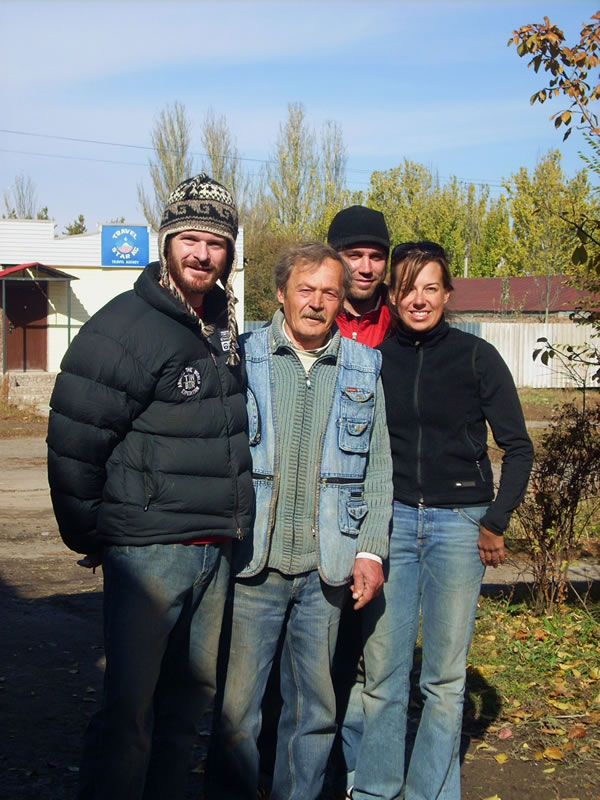
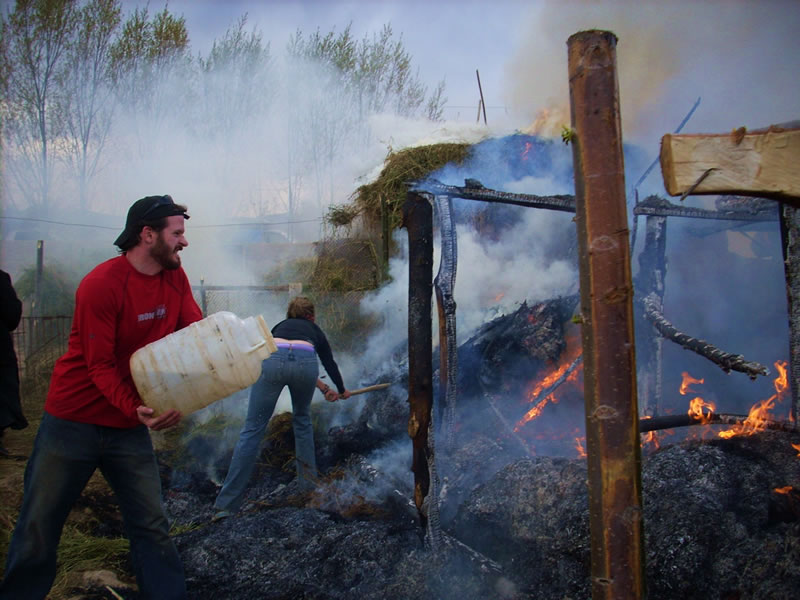

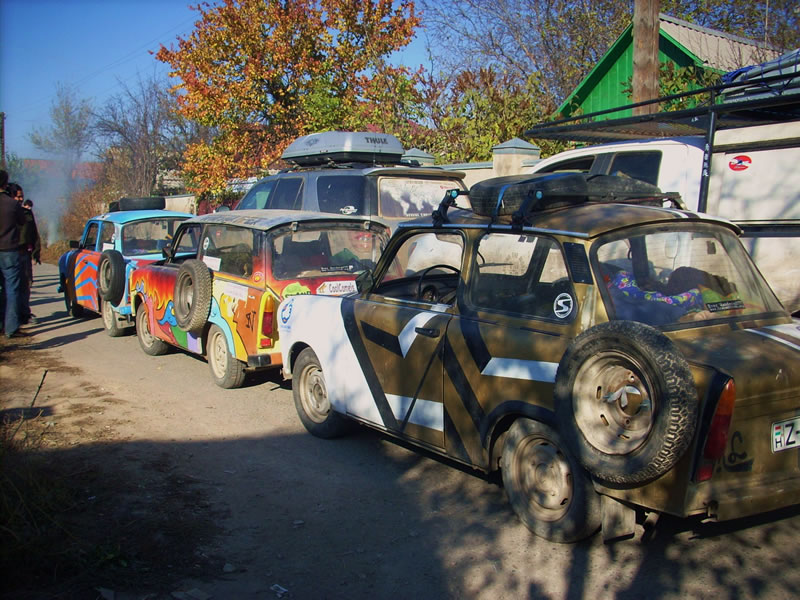
 When I first came up with this scheme to drive around the world, it was a secret from my family for a while. I knew that my mom and sister would be worried, so it seemed better to get things in motion before getting their input. Months went by and then I decided to tell Katie (my sister). Around this time I was still early in the planning phases of the journey. Katie likely just brushed this off as another one of the silly ideas I tend to come up with on a regular basis.
When I first came up with this scheme to drive around the world, it was a secret from my family for a while. I knew that my mom and sister would be worried, so it seemed better to get things in motion before getting their input. Months went by and then I decided to tell Katie (my sister). Around this time I was still early in the planning phases of the journey. Katie likely just brushed this off as another one of the silly ideas I tend to come up with on a regular basis.

